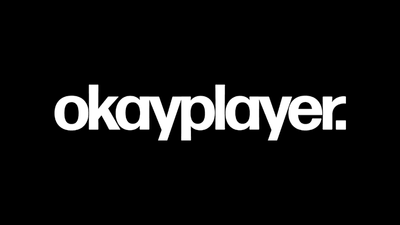A Digital Crate-Digging Service Has Made Clearing Samples as Easy as Ever
Sampling is still a vital part of hip-hop. And new technology has made the process easier than ever.
Nostalgia riffs through today’s popular music. Two of the biggest songs of the year, Drake's "Nice for What" and Cardi B's "Be Careful," sampled Lauryn Hill’s 1998 classic “Ex-Factor.” While music buzz these days tends to revolve around the actual artists and less around beats, behind the scenes there’s a whole wing of the music industry dedicated to the business of sampling.
Hip-hop is a genre that's always been based on sampling. And, at times, that relationship has often been very contentious and complicated.
Paul’s Boutique, the Beastie Boys’ 1989 sophomore album, is thought to have sampled up to a 300 songs. There are loops, soundbites, and breaks buried within each other. The complex album became a landmark in the industry. The sampling heard on Paul's Boutique was so dense it was nearly impossible to repeat.
The lights came on when music sampling became micromanaged by strict legal outlines, hellbent on cracking down on “fair use” violators.
In 1990, M.C. Hammer's “U Can't Touch This” sampled Rick James’ “Superfreak;” Vanilla Ice’s“Ice, Ice, Baby” sampled Queen and David Bowie’s “Under Pressure.” Both songs ended in legal controversy. Ultimately Hammer settled out of court with James, giving him co-composer credit and a share of royalties, and Bowie and Queen received songwriting credits for “Ice, Ice, Baby.”
In 1991, there was the infamous case of Biz Markie's “Alone Again” on his I Need A Haircut album. The track sampled piano notes from Gilbert O'Sullivan's 1972 hit "Alone Again (Naturally)"without proper clearance. The rapper reportedly requested to use the sample from O’Sullivan, but his request was declined. Markie went ahead and looped it anyway. He was forced to pay a reported $250,000 in redresses, and his label, Warner Brother, was banned from continuing to sell either the single or album. The case ultimately set a new precedent for the business and creativity behind music sampling. Labels started hiring staff to scour releases to make sure all samples had proper clearance.
It’s been more than twenty years since the Grand Upright Music, Ltd. v. Warner Bros. Records Inc. case first altered the industry. Despite the court’s ruling that sampling without permission can qualify as copyright infringement, the business and creatively of sampling has not come to a halt. Producers are still busy sampling. And consumers are still curiously checking sites like WhoSampled.

A new music tech service called Tracklib has the mission of helping artists and producers make sure their samples are cleared before hitting the airwaves. It’s the first and only digital music sampling service of its kind. The platform is an ever-growing library of samples producers can use without the stress of worrying if they are cleared by publishers and labels.
It’s free to sign-up for the digital crate digging service. The platform allows users to buy tracks for $1.99. Once a song is ready to be released there are three licensing categories priced at $50, $500, and $2500, depending on how much of the song is sampled. Licenses cost as little as $50, plus a 2% revenue share with the original rights-holders.
Tracklib was founded by serial entrepreneur Pär Almqvist. The service launched back in April. The goal? Make sampling fast, easy, and affordable.
“It’s really helping people discover great original recordings from all over the world. So the core of it is really digital crate-digging,” Almqvist said.
Almqvist has recruited sampling vets like Tom Silverman, founder of Tommy Boy Records; Deborah Mannis-Gardner, a music clearance expert who has cleared samples for the likes of Drake, Nicki Minajand Eminem;and veteran producer Drumma Boy.
Silverman notes that 98% of music sampling is done without authorization, except for the 30 or 40 artists who can afford it. “Everyone else just sort of cheat or they’re in the middle class and they hire artists to replay their music, so it sounds like a repeat," Silverman said. "But who is actually getting hurt is the original artists who aren’t getting money. Everything would be so much better if everything was free and people were encouraged to use old music to make new music. It’s also the best way that a younger generation can learn about old music, when some producer uses a record that is 30-40 years old and brings back to life someone that may have passed on.”
Most recently Zaytoven joined the Tracklib team. The Atlanta producer has been instrumental in cultivating the city’s trap sound. Up until recently, Zaytoven notes he never used samples for his work out fear of having to pay an absorbent amount of fees in licensing.
“Hip-hop is based in sampling, that’s where the music really comes from. It comes from pulling from other places and it’s definitely needed now more than ever,” Zaytoven said. “I think people look up to me and they’re like ‘well, Zaytoven doesn’t sample, so I don’t need to sample.’ So now when I add these other layers I think it will encourage others to add layers to their music and it will be that much bigger.”
The experimental value that comes with sampling a beat, and putting it out for the public to consume and respond to, is essential to the DNA of hip-hop. Very few are rushing to dig through actual crates for music samples (sigh). Now it's up to services like Tracklib to keep the art of sampling alive.
Whether this is a good or bad thing remains to be told.
__
Priscilla Ward is a celebrated writer whose work has been featured in Essence, Salon and is also the creator of #BLCKNLIT. You can find her tweeting about bell hooks, sandwiches and art shows @MacaroniFRO.

